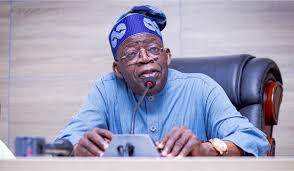President Bola Ahmed Tinubu has ordered a full review of revenue deductions and retention practices by Nigeria’s major federal revenue-earning agencies. The directive was made public by the Minister of Finance and Coordinating Minister of the Economy, Mr. Wale Edun, after the Federal Executive Council meeting in Abuja on Wednesday, August 13, 2025. The move is aimed at increasing government savings, improving how public funds are spent, and freeing more resources to drive economic growth.
The agencies affected by the review include the Federal Inland Revenue Service (FIRS), Nigeria Customs Service (NCS), Nigerian Upstream Petroleum Regulatory Commission (NUPRC), Nigerian Maritime Administration and Safety Agency (NIMASA), and the Nigerian National Petroleum Company Limited (NNPC). These organisations are among the key institutions responsible for generating and managing Nigeria’s revenue.
Mr. Edun explained that President Tinubu is particularly concerned about certain provisions under the Petroleum Industry Act (PIA), especially the NNPC’s 30 per cent management fee and another 30 per cent deduction for frontier exploration. According to him, these deductions have drawn questions about their effect on the government’s ability to fund essential public programmes. The review is expected to examine whether these arrangements still serve the country’s best economic interests.
During the meeting, President Tinubu noted that public investment in Nigeria currently stands at only 5 per cent of the country’s Gross Domestic Product (GDP). He linked this low level of public investment to inadequate government savings. He instructed the Economic Management Team, led by Mr. Edun, to carry out a thorough analysis of all deductions and come up with practical recommendations for optimising every naira that enters government coffers.
Mr. Edun said this decision forms part of broader economic reforms under the Tinubu administration. He highlighted that these reforms have already started dismantling economic distortions, restoring credibility to government policies, and building investor confidence. He added that a more transparent and competitive business environment is gradually emerging as a result of these measures.
President Tinubu also tied the directive to his Renewed Hope Agenda, which targets building a $1 trillion economy by 2030. To reach this target, Nigeria must achieve an average annual growth rate of at least 7 per cent starting from 2027. The president described this goal as not just an economic requirement but also a moral duty to lift millions of Nigerians out of poverty.
He also referred to the International Monetary Fund’s (IMF) Article IV report on Nigeria released in July 2025, which he said supports the country’s current economic direction and stresses the importance of investment-led growth.
The meeting also discussed the Renewed Hope Ward Development Programme. This is a grassroots initiative designed to fight poverty in all 8,809 wards across Nigeria’s 774 local government areas. It will be implemented in partnership with state and local governments as well as private organisations to directly empower citizens at the community level.
Mr. Edun added that key macroeconomic indicators are showing signs of improvement. He noted that the exchange rate is becoming more stable, inflation is starting to decline, government revenue is rising, and the debt-to-GDP ratio is now at a more sustainable level. He urged Nigerians to see savings not simply as spending cuts but as the foundation for increased domestic and foreign investment.
By initiating this review, the Tinubu administration is making it clear that all agencies responsible for collecting and managing national revenue must account for every kobo and deliver value for the country. The expectation is that the review will help reduce unnecessary deductions, improve transparency, and return more funds for infrastructure, healthcare, education, social programmes, and other vital sectors that can support inclusive growth and help reduce poverty nationwide.
